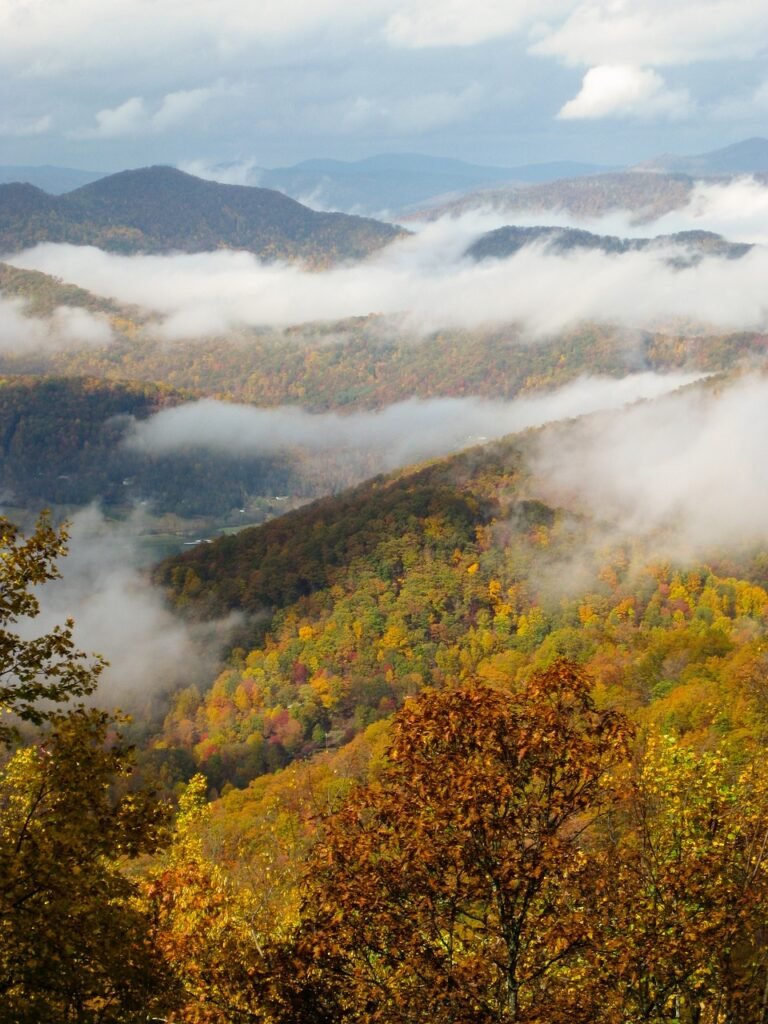Hello there! Have you ever wondered if Tennessee is actually considered part of Appalachia? Well, the answer might surprise you. While Tennessee does have some areas that fall within the Appalachian region, it is not entirely classified as Appalachia. Let’s explore the unique geography and cultural diversity of Tennessee to understand why it straddles the line between being part of Appalachia and not. Is Tennessee Considered Appalachia?
Have you ever wondered if Tennessee is considered part of Appalachia? You may have heard the term “Appalachia” used before but weren’t quite sure how certain states fit into this region. In this article, we will explore whether or not Tennessee is considered part of Appalachia and what defines the Appalachian region as a whole. Let’s dive in and uncover the truth about Tennessee and Appalachia.
What is Appalachia?
Before we determine if Tennessee is part of Appalachia, let’s first understand what exactly constitutes the Appalachian region. Appalachia is a cultural region in the Eastern United States that stretches from southern New York to Northern Alabama and Georgia. The region is known for its unique cultural heritage, including music, food, and traditions that have been passed down through generations.
Geographic Boundaries
Appalachia is typically defined by the Appalachian Mountains, a mountain range that runs from Canada to Alabama. The range is characterized by its rolling hills, dense forests, and diverse wildlife. Within this mountain range, the region is divided into several sub-regions, including Northern, Central, and Southern Appalachia.
Cultural Identity
In addition to its geological features, Appalachia is also defined by its cultural identity. The region is home to a unique blend of cultures, including Native American, European, and African American influences. Appalachians are known for their strong sense of community, storytelling traditions, and deep connection to the land.

This image is property of pixabay.com.
Is Tennessee Part of Appalachia?
Now that we have a better understanding of what defines the Appalachian region, let’s address the question: is Tennessee considered part of Appalachia? The answer is yes, Tennessee is indeed considered part of Appalachia. The eastern portion of the state falls within the Appalachian region, specifically in Central and Southern Appalachia.
Sub-Regions of Appalachia in Tennessee
Within Tennessee, there are two sub-regions of Appalachia: Central Appalachia and Southern Appalachia. The counties located in these sub-regions are characterized by their mountainous terrain, rural landscapes, and strong cultural ties to the Appalachian region as a whole.
Appalachian Influence in Tennessee
The Appalachian influence in Tennessee can be seen in various aspects of the state’s culture, including music, food, and traditions. Bluegrass and country music, for example, are deeply rooted in the Appalachian region and have played a significant role in shaping Tennessee’s musical heritage. Additionally, Appalachian cuisine, which features dishes like cornbread, biscuits, and fried chicken, has also made its mark on the state’s culinary scene.

This image is property of pixabay.com.
Tennessee’s Connection to the Appalachian Trail
One of the most iconic features of the Appalachian region is the famous Appalachian Trail, a 2,200-mile hiking trail that stretches from Georgia to Maine. Tennessee is home to a section of the trail known as the Great Smoky Mountains National Park, which attracts hikers from all over the world. The trail offers stunning views of the Appalachian Mountains, diverse wildlife, and a chance to immerse oneself in the natural beauty of the region.
Hiking in Tennessee
If you’re an outdoor enthusiast, Tennessee offers plenty of opportunities to explore the Appalachian region through hiking. Whether you’re a seasoned hiker looking for a challenging trek or a beginner seeking a leisurely stroll, there are trails in Tennessee for every skill level. From the rugged terrain of the Smoky Mountains to the picturesque landscapes of the Cumberland Plateau, Tennessee’s hiking trails showcase the beauty and diversity of the Appalachian region.
Appalachian Trail Towns in Tennessee
Along the Appalachian Trail in Tennessee, there are several charming small towns that serve as gateways to the trail. Towns like Gatlinburg, Hot Springs, and Erwin offer hikers a place to rest, resupply, and connect with other outdoor enthusiasts. These towns have a rich Appalachian heritage and provide a warm welcome to visitors exploring the region.

This image is property of pixabay.com.
Economic Challenges in Appalachia
While the Appalachian region is known for its natural beauty and cultural heritage, it also faces unique economic challenges. Many counties in Appalachia, including those in Tennessee, struggle with poverty, unemployment, and lack of access to healthcare and education. These economic disparities have been longstanding issues in the region and have led to ongoing efforts to revitalize and support Appalachian communities.
Poverty Rates in Tennessee Appalachia
Tennessee, like other states in Appalachia, has higher poverty rates compared to the national average. According to the Appalachian Regional Commission, the poverty rate in Tennessee’s Appalachian counties is 18.2%, significantly higher than the state average of 15.0%. These disparities highlight the need for greater investment in economic development and support for the communities that call Appalachia home.
Economic Development Initiatives
In response to the economic challenges facing Appalachia, there have been various initiatives aimed at promoting economic development and creating opportunities for residents. Programs focusing on job training, small business support, and infrastructure improvements have been implemented to help stimulate economic growth in the region. By investing in these initiatives, policymakers hope to create a more sustainable future for the people of Appalachia.

Preservation of Appalachian Culture
Despite the economic challenges facing the region, the cultural heritage of Appalachia remains strong and resilient. Appalachian traditions, music, and storytelling continue to be passed down through generations, preserving the unique identity of the region. Efforts to celebrate and promote Appalachian culture help to ensure that the rich history and traditions of the region are not lost to time.
Cultural Festivals in Tennessee
Tennessee is home to a variety of cultural festivals that celebrate the traditions of Appalachia. Events like the Bristol Rhythm & Roots Reunion, Rhythm & Blooms Music Festival, and the Smithsonian Folklife Festival showcase the music, food, and crafts of the region. These festivals provide a platform for artists, musicians, and craftsmen to share their talents and promote awareness of the Appalachian culture.
Appalachian Arts and Crafts
The Appalachian region is known for its unique arts and crafts, including woodworking, quilting, and basket weaving. In Tennessee, artists and craftsmen continue to practice these traditional skills, creating handmade goods that reflect the heritage of the region. From hand-carved wooden furniture to intricate patchwork quilts, the artistry of Appalachia is a testament to the creativity and craftsmanship of its people.

Conclusion
In conclusion, Tennessee is indeed considered part of the Appalachian region, with its Eastern counties falling within the boundaries of Central and Southern Appalachia. The state’s connection to the Appalachian Trail, its cultural roots, and its economic challenges all contribute to its identity as an Appalachian state. By celebrating and preserving the traditions of the region, Tennessee can continue to honor its Appalachian heritage for generations to come. So next time you find yourself in Tennessee, take a moment to soak in the beauty and richness of the Appalachian culture that thrives within the state.

